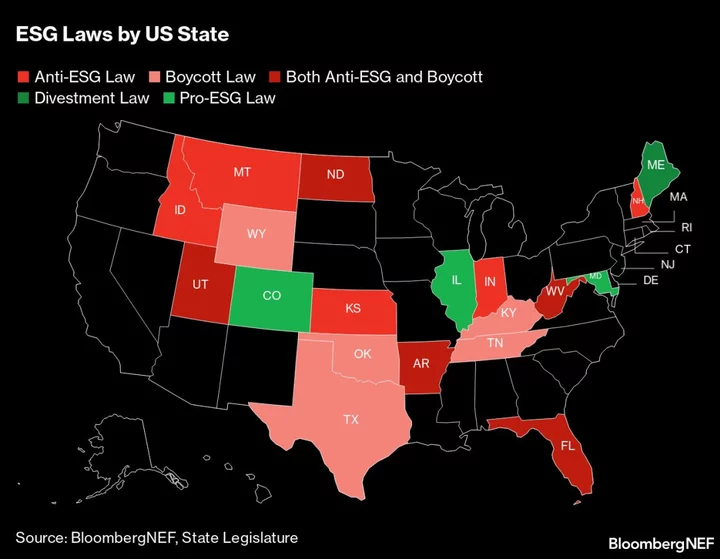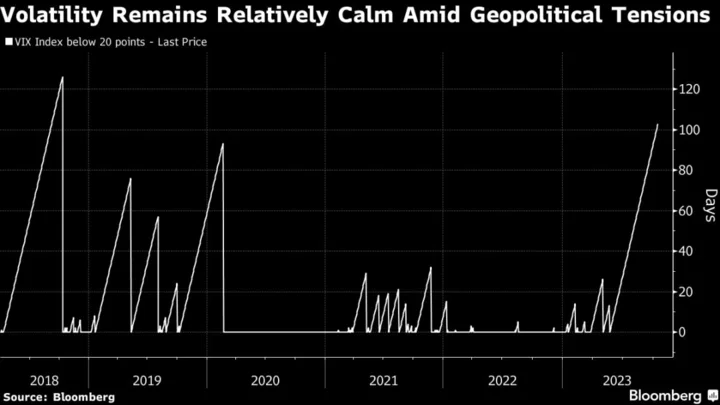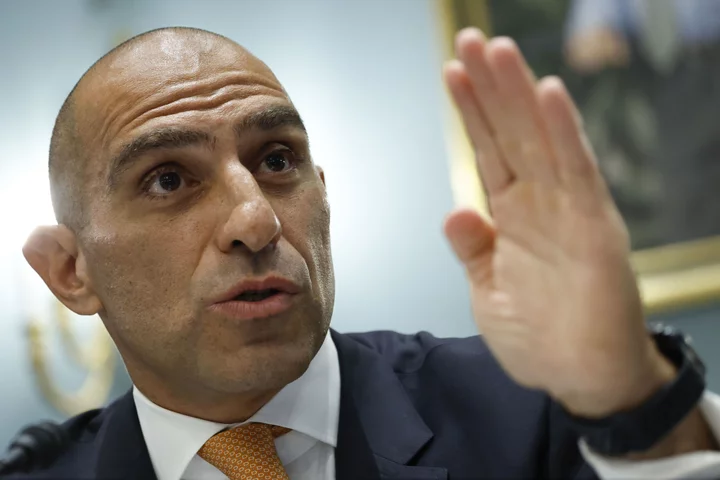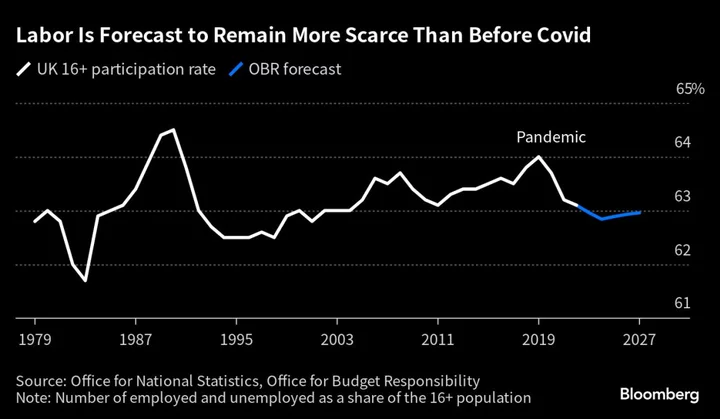As Republican legislators in the US try to wipe ESG off the map, most global investors and executives are acting as though those efforts will ultimately fail.
Using environmental, social and governance metrics is now mainstream, according to 89% of investors who responded to a survey published Wednesday by Bloomberg Intelligence. And 57% said the “ESG” label shouldn’t be replaced by something less incendiary, despite the backlash.
ESG is primarily being used to “improve profit, competitiveness and brand value,” according to Bloomberg Intelligence, whose full survey findings are based on responses from 250 C-suite executives and 250 senior investors distributed evenly across the US, Europe and the Asia-Pacific region.
Overall, the survey found that 85% of investors think ESG leads to “better returns, resilient portfolios and enhanced fundamental analysis.” Among executives surveyed, 84% said ESG helps them “shape a more robust corporate strategy,” according to Adeline Diab, BI’s director of ESG strategy and research.
The findings come as ESG fund flows have showed signs of cooling, against a backdrop of continued political attacks and disappointing returns. This year, investors in wind and solar stocks have seen their investments sink as higher interest rates and supply-chain bottlenecks have pummeled the renewable-energy sector.
Read More: Hedge Funds Are Shorting Stocks Biden’s IRA Is Meant to Help
Meanwhile, laws seeking to ban ESG are spreading across GOP-led US states. The development has drawn warnings from some of the biggest names on Wall Street, as banks and asset managers get punished for policies deemed unfriendly to the gun and fossil fuel industries. This month, JPMorgan Chase & Co. Chief Executive Officer Jamie Dimon warned that Texas risks undermining its business-friendly reputation with its anti-ESG laws.
In the US, investors pulled $2.7 billion from sustainable funds in the third quarter, and fewer new sustainable funds started than at any point in the past three years, according to data provided by Morningstar Inc. In Europe, meanwhile, ESG fund flows proved resilient.
At the same time, some of the biggest investment firms are expanding their ESG business. BlackRock Inc., the world’s largest asset manager, said last month that its sustainable long-term flows have been positive every quarter since the beginning of 2022. BlackRock now manages almost $700 billion of sustainable strategies on behalf of clients, up from $200 billion in 2020.
A key finding of the Bloomberg Intelligence survey was the role played by ESG regulations and legislation in steering corporate strategies and capital flows. “Global regulation anchors ESG in financial markets and corporate strategy, yet challenges include data consistency and fund labeling for investors, and transition costs and supply-chain risk for companies,” Diab said.
Among investors surveyed, 86% view ESG as a part of their fiduciary duty and 90% expect ESG investments to deliver better returns over a 12-month period. Additionally, 88% of senior investors surveyed said they would expand their assets under management toward climate-friendly strategies over the next two years.
The survey findings revealed some differences in how investors and corporate executives view ESG, depending on the time horizon. In the short term, respondents said “geopolitical risks may deter ESG plans,” Diab said. “Yet long-term commitments are intact.”
See Below for Details of Who Was Surveyed:
(Adds details on methodology in final chart.)









